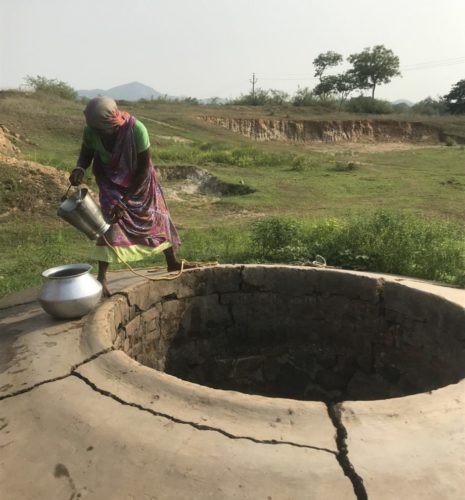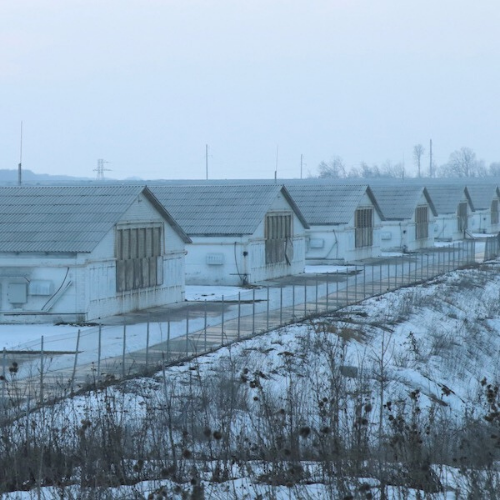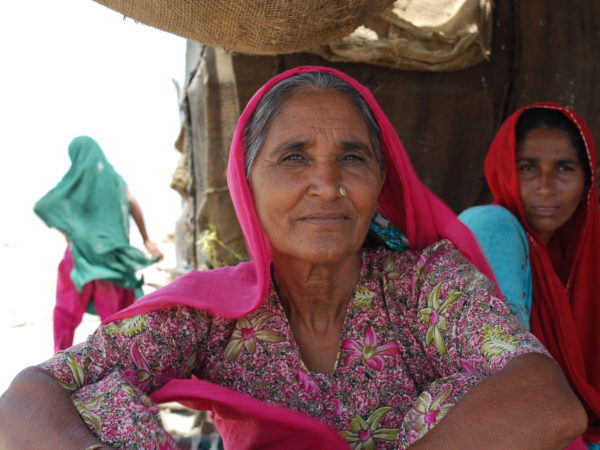Environmental Harm
The Issue
Internationally financed projects like mines, oil pipelines, and large dams are notorious for the grave environmental risks and harm they bring that are both local and global in scale. Communities come to us with issues such as point source air and soil pollution, groundwater depletion and contamination, and loss of local natural habitats.
At the same time as projects are causing local-level environmental destruction, they also often contribute to catastrophic global impacts such as deforestation and greenhouse gas emissions that cause biodiversity loss and climate change. Often, the communities bearing the brunt of these impacts are those who are most vulnerable to the worst effects of climate change and ecological harm — in our cases, those most affected are often the traditional conservators of natural resources.
The Opportunity
Accountability offices are uniquely positioned to help local communities communicate environmental risks or harm to international investors making project and sector wide decisions. These accountability office complaints can lead to independent findings of non-compliance with environmental policies that highlight weaknesses in a governance system, can help institutions and companies identify needed remedial and prevention measures, and can lead to agreements to resolve issues through dispute resolution.
At a systems level, accountability offices can improve transparency and responsiveness of international institutions to their missions, mandates, and policies.
At the governance level, there is an opportunity for climate finance and investment decision-makers to use the Accountability Console, Accountability Counsel’s database of all complaints ever filed with accountability offices to identify issues as part of standard due diligence.
Case Study of Our Strategy in Action
Accountability Counsel provides legal support to community groups in Lamu, Kenya who are united to stop a proposed coal-fired power plant that threatens to permanently and dramatically disrupt the fragile marine ecosystem of the entire Lamu archipelago, and also contribute to climate change.
Our strategy in our Communities program is to partner with Save Lamu in their work to hold international banks and institutions accountable to their committed environmental and social rules to prevent this project’s devastating environmental impacts.
Our Research program strategy is to document the Lamu case along with nearly 450 other cases catalogued in our public database, the Accountability Console, that raise environmental harm in accountability office complaints to international institutions.
Our Policy team’s strategy on this issue is to engage at the systems level, using our case experience in Lamu and research into use of financial intermediaries to hide fossil fuel finance, to advocate for transparency, strong due diligence standards, accountable investments, and good governance to prevent environmental harm.
Relevant Cases Include: Lamu Coal-Fired Power Plant, Kenya | Ridge to Reef Conservation Project, Myanmar | Oil in the Amazon, Peru | Oro Province Palm Oil, PNG | Hydroelectric Power in Oaxaca, Mexico | Biomass Project in Buchanan, Liberia | Mining in the South Gobi, Mongolia | Agribusiness in Ukraine | Water Project in Jharkhand, India
Related Blogs and News
Kenya: Lamu Coal-Fired Power Plant
- 30 October 2019 – Shifting Risk from the Poor to the Powerful Through Accountability: 2019 World Bank Group Annual Meetings Read Out By Accountability Counsel
- 2 September 2019 – IFC Escapes Responsibility for Lamu Coal Plant Contributions
- 12 June 2019 – China’s promise of responsible belt and road investments is in the hands of its bankers By Natalie Bridgeman Fields, Accountability Counsel, in South China Morning Post
Myanmar: Ridge to Reef Project
- 20 August 2019 – Indigenous Communities in Myanmar Take Action Against Top-Down Conservation By Anirudha Nagar, Accountability Counsel, in The Diplomat
- 9 August 2019 – UN Team Meets Locals to Discuss Issues with Tanintharyi Conservation Project By Kyaw Soe Htet, Myanmar Times
Peru: Oil in the Amazon
- 15 April 2015 – Gold Rush: How the World Bank is Financing Environmental Destruction By Ben Hallman and Roxana Olivera, HuffPost & International Consortium of Investigative Journalists
Mexico: Oaxaca Hydroelectric
- 5 June 2019 – A Conversation with Gabino Vicente: Preventing Environmental Harm in International Development
- 26 March 2019 – What happens when a DFI project goes wrong? By Teresa Welsh, Devex
- 9 April 2018 – Community watches over creek’s turtles By Mexico News Daily
- 31 January 2018 – The Human Rights Ripple Effect By New Media Advocacy Project
Liberia: Biomass Project in Buchanan
- 26 March 2019 – What happens when a DFI project goes wrong? By Teresa Welsh, Devex
- 17 July 2018 – It Takes Consultation to Help a Village By Rachel Cernansky, New York Times
- 3 March 2017 – AC and Partners Successfully Press OPIC to Strengthen Its Environmental and Social Policy Statement
- 8 December 2016 – New FOIA Release Shows U.S. Agency Ignored Warnings While Investing Millions in Failed Project in Liberia By Kindra Mohr & Lani Inverarity, Accountability Counsel, in HuffPost
Mongolia: South Gobi Mining
- 8 April 2019 – ‘An example to all’: the Mongolian herders who took on a corporate behemoth – and won By Rod Austin, The Guardian
- 13 February 2019 – A long road to remedy
- 9 August 2017 – How a group of Mongolian herders took on a mining giant – and won By Sophie Edwards, Devex
- 26 June 2017 – Mongolian herders ink historic agreement with Oyu Tolgoi mine, government By Accountability Counsel, in MINING.com
Ukraine: Agribusiness
- 15 November 2018 – Will the Long-Awaited Bypass Road Pave the Way to Reconciliation?
- 26 July 2018 – Ukrainian agribusiness giant MHP responds to media coverage of community complaints
- 23 June 2018 – Living next door to 17 million chickens: ‘We want a normal life’ By Oksana Grytsenko, The Guardian
India: Jharkhand Water Project
- 2 March 2020 – In Deep Water: Will the World Bank honor its commitments to the poor in an Indian water project?
- 4 April 2019 – No consent of communities? World Bank to investigate water supply project in Jharkhand By Development Channel
- 4 April 2019 – Nod for probe into World Bank-funded project in Jharkhand By Abhishek Angad, The Indian Express
- 16 July 2016 – Water War By Hindustan Times
-

-
 Deforestation to make way for new palm oil in Papua New Guinea
Deforestation to make way for new palm oil in Papua New Guinea -
 Camels in Mongolia suffering from lack of water and pasture
Camels in Mongolia suffering from lack of water and pasture -
 Shipibo man cleaning up an oil spill with his bare hands in a creek used for drinking
Shipibo man cleaning up an oil spill with his bare hands in a creek used for drinking -
 The Arroyo Sal in Oaxaca, Mexico was threatened by a hydroelectric project
The Arroyo Sal in Oaxaca, Mexico was threatened by a hydroelectric project -

-
 The Ridge to Reef project covers over 1.4 million hectares of land in the Tanintharyi Region of Myanmar
The Ridge to Reef project covers over 1.4 million hectares of land in the Tanintharyi Region of Myanmar -
 Indigenous Adivasi communities in Jharkhand worry their water resources will be polluted or depleted as a result of the project
Indigenous Adivasi communities in Jharkhand worry their water resources will be polluted or depleted as a result of the project -
 Agribusiness in central Ukraine poses threats to the environment and climate
Agribusiness in central Ukraine poses threats to the environment and climate

